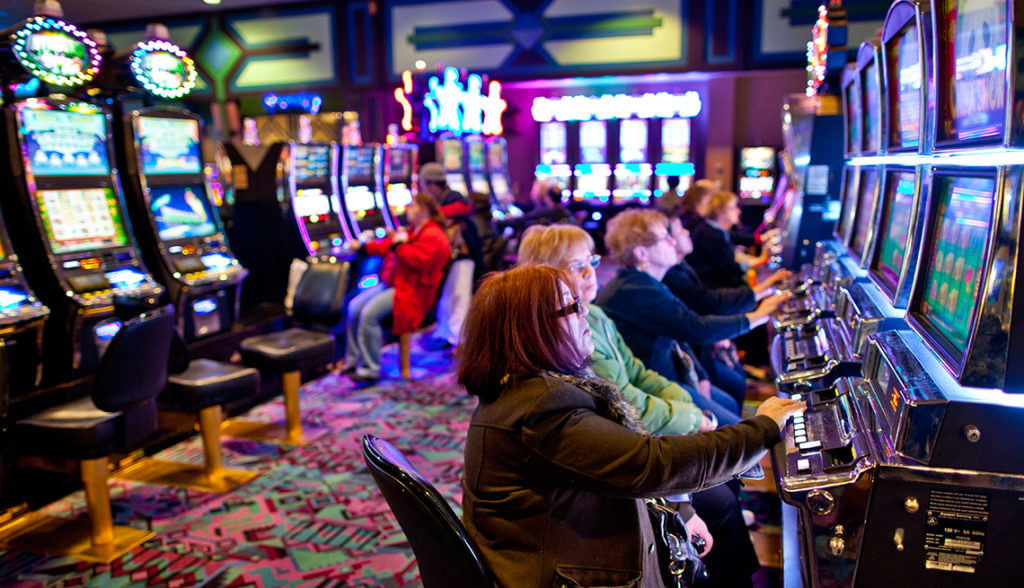Casino games have long been a significant aspect of human culture, delivering not just entertainment but a captivating reflection of our dreams, dreams, and anxieties. From the rotating wheels of a slot machine to the strategic gameplay of poker, these games represent a spectrum of human feelings and incidents. At their core, casino games are not just a chance to win money; they are a microcosm of life itself, where danger and gain converge and fate can change in an instant.
As players assemble around tables or sit in front of glowing machines, they take part in a ritual that transcends mere betting. These games echo our natural desires for relationships, thrill, and the pursuit of luck. They also disclose deeper truths about human nature, such as our relationship with luck and the thrill of risk. In exploring casino games, we discover not only the mechanics of play but also the intricate pattern of the human journey, showcasing our woven narratives of goal and reality.
The Psychology of Gambling
Wagering is deeply rooted in human psychology, tapping into various emotions and wants. The thrill of risk-taking is a core aspect that attracts participants, whether it’s thrill of spinning a roulette or the excitement of drawing a winning card in a poker game. Bearbrick888 MY This rush of adrenaline is often compared to other forms of thrill, as the uncertainty of outcomes elicits a unique psychological response. Gamblers often become captivated by the possibility of winning big, leading to an almost magnetic draw toward gambling games.
Additionally, an essential component of the psychology behind gambling is the concept of optimism and ambition. Participants often nourish fantasies of financial freedom and the opulent lifestyle that can follow winning. This hope fuels their continued participation in gambling, as it provides a sense of meaning and the conviction that a life-changing win could be just one wager away. The narrative of overcoming odds and achieving success resonates with many, strengthening their commitment to play and engage with these games.
Lastly, social dynamics play a crucial role in gambling psychology. Gambling venues are designed to foster social interaction, where gamblers gather to share the journey of wins and losses. This shared aspect not only enhances enjoyment but also affects behavior, as individuals often mimic the actions of others in their vicinity. The social validation found in shared excitement can magnify the emotional experience, making casino games a mirror of not just personal desires but also shared involvement within the gaming community.

## The Dual Nature of Risk and Reward
Casino games embody the subtle balance between risk and reward that resonates deeply with the human experience. The excitement of placing a bet is often accompanied by a jolt of energy, as players are confronted with the chance of winning big, yet fully aware of the potential to lose. This twofold experience reflects a essential aspect of life: the choices we make often come with intrinsic risks, and the pursuit of reward can push us to make risky moves we might not normally consider. In this way, casino games echo real-world choices, enticing gamblers to risk not just their funds, but also their aspirations.
The allure of grand jackpots and winnings fuels a wave of hope, motivating gamblers to dream of a brighter future that could arise from a fortunate turn of the roulette or dealing of a hand. This optimism can compel individuals to engage in riskier behaviors, urging them to extend their limits in search of economic benefit. However, just as in life, the outcomes of these risks can lead to both victory and failure. The stories of both jackpot winners and those who have faced losses everything at the casino demonstrate the chaotic nature of luck and its impactful impact on our existence.
Ultimately, the experience of engaging with casino games serves as a vivid illustration of the nature of humanity. Every round played is filled with the tension of ambiguity, as players weigh the rewards against the risks. Bearbrick888 This balance not only highlights the excitement that comes with gambling but also unveils the vulnerabilities that come with the desire for more. As we explore the complexities of choice and results in both the gambling world and in life, we find that the quest for gain shapes our character and experiences in significant manners.
Society and Solitude in Gambling Culture
Casino culture is a distinct blend of social engagement and personal endeavor, reflecting the tensions of human experience. Gamblers often come together around games, experiencing in the thrill of the action, rejoicing in wins, and sympathizing over losses. This social aspect is vital, as it establishes a sense of community and camaraderie among varied groups of people. Regular attendees to casinos may form friendships and develop routines, turning the gambling venue into a second home where they feel connected to a greater community of players.
However, the attraction of gambling activities can also result to loneliness. As individuals become immersed in the thrill of playing, they may isolate from personal relationships or fail to engage with the environment outside the casino. For some, the search of a jackpot can overshadow genuine connections, leading to isolation. The situation of being among people yet experiencing solitary is not rare, as the focus shifts from collective fun to the private concerns of each individual’s journey.
This interaction of community and solitude creates a rich mosaic that defines casino atmosphere. It showcases the complexity of human interactions, where happiness and sorrow coexist. Casinos serve as both a sanctuary for social interaction and a platform for individual struggles, demonstrating how intimately connected our yearning for connection and the individual quest for fortune can be. In navigating this environment, gamblers confront their own stories—seeking both the rush of the wager and the companionship of other players, eventually mirroring the wider spectrum of human experience.